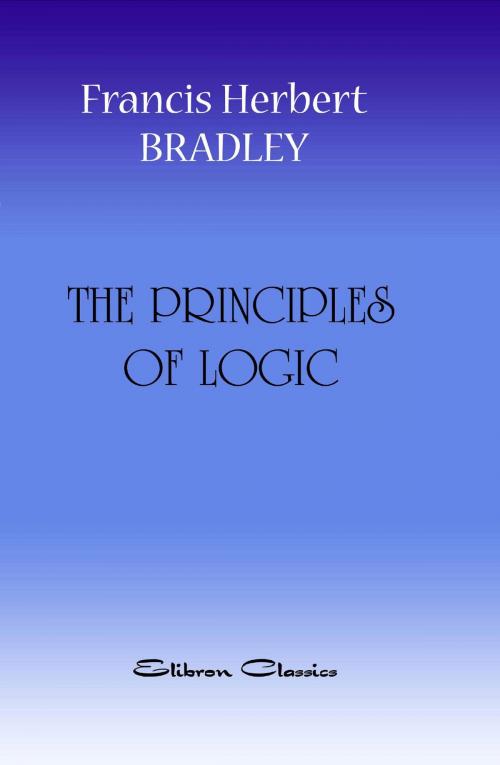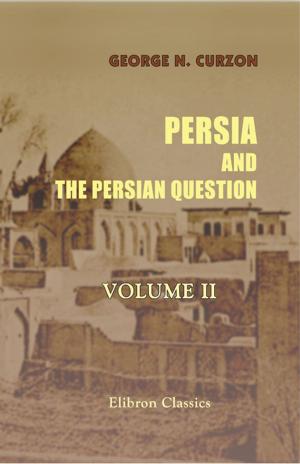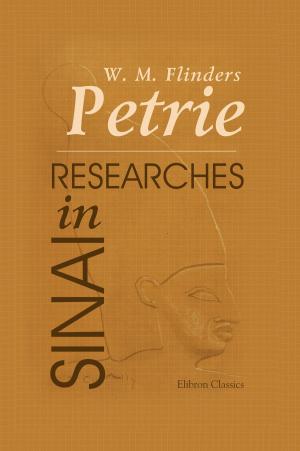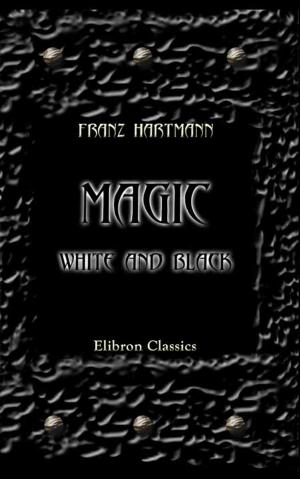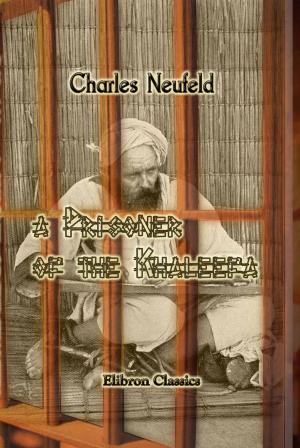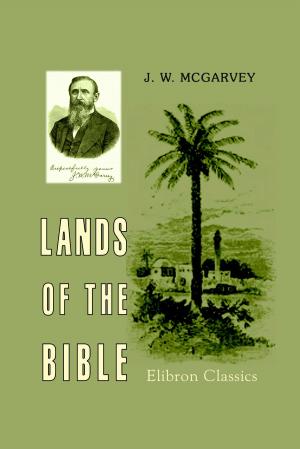| Author: | Francis Bradley | ISBN: | 9780543014283 |
| Publisher: | Adegi Graphics LLC | Publication: | October 30, 2013 |
| Imprint: | Elibron | Language: | English |
| Author: | Francis Bradley |
| ISBN: | 9780543014283 |
| Publisher: | Adegi Graphics LLC |
| Publication: | October 30, 2013 |
| Imprint: | Elibron |
| Language: | English |
Elibron Classics. Replica of 1883 edition by Kegan Paul, Trench, & Co., London.
Francis Herbert Bradley (1846–1924) was the most famous, original and philosophically influential of the British Idealists.
Bradley’s most sustained treatment of logic comes in The Principles of Logic, published contemporaneously with Frege’s Grundlagen. The benefit of hindsight provides a striking contrast between these works, the former apparently looking back to the nineteenth century, the latter anticipating the twentieth. During his life, Bradley was a respected philosopher and was granted honorary degrees many times. He was the first British philosopher to be awarded the Order of Merit. His fellowship at Merton College did not carry any teaching assignments and thus he was free to continue to write. He was famous for his non-pluralistic approach to philosophy. His outlook saw a monistic unity, transcending divisions between logic, metaphysics and ethics. Consistently, his own view combined monism with absolute idealism. Although Bradley did not think of himself as a Hegelian philosopher, his own unique brand of philosophy was inspired by, and contained elements of, Georg Wilhelm Friedrich Hegel’s dialectical method.
Elibron Classics. Replica of 1883 edition by Kegan Paul, Trench, & Co., London.
Francis Herbert Bradley (1846–1924) was the most famous, original and philosophically influential of the British Idealists.
Bradley’s most sustained treatment of logic comes in The Principles of Logic, published contemporaneously with Frege’s Grundlagen. The benefit of hindsight provides a striking contrast between these works, the former apparently looking back to the nineteenth century, the latter anticipating the twentieth. During his life, Bradley was a respected philosopher and was granted honorary degrees many times. He was the first British philosopher to be awarded the Order of Merit. His fellowship at Merton College did not carry any teaching assignments and thus he was free to continue to write. He was famous for his non-pluralistic approach to philosophy. His outlook saw a monistic unity, transcending divisions between logic, metaphysics and ethics. Consistently, his own view combined monism with absolute idealism. Although Bradley did not think of himself as a Hegelian philosopher, his own unique brand of philosophy was inspired by, and contained elements of, Georg Wilhelm Friedrich Hegel’s dialectical method.
